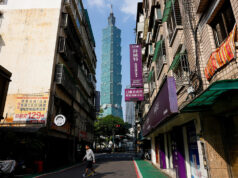Phinma finalizing acquisition of Indonesian school this year
By Janina C. Lim, Reporter
THE Phinma Group said the proceeds from a recent transaction with Ayala Corp. will help fund the expansion of its education business in Southeast Asia, as well as its construction business.
“Our education business continues to do very well and we’re looking at more acquisitions, both in the Philippines and in Southeast Asian countries,” Phinma Corp. President and CEO Ramon R. del Rosario told BusinessWorld on the sidelines of the Philippine Competition Commission’s forum last Feb. 1.
“We are in the process of closing an acquisition in Indonesia, hopefully in the near future… within the year…. we’re hoping to bring our model of bringing quality eduction for the poor to Indonesia as well,” he added.
The acquisition involves an educational institution in Surabaya, Indonesia which has less than 5,000 students. The value of the deal was not disclosed.
Mr. Del Rosario said the company is looking at possible acquisitions in Vietnam, as well as the Philippines.
“We continue to be on the lookout for significant acquisitions, including one in Metro Manila,” he said.
Phinma owns six universities and colleges, namely Araullo University, Inc.; Cagayan de Oro College, Inc.; University of Iloilo, Inc.; University of Pangasinan and subsidiary Southwestern University; and St. Jude College Manila, Inc.
“We have organic growth, the schools have been growing quite well, which is not the experience of everybody because of the free tuition but we managed to continue growing mainly because of the strength of our board results. And that’s where the bulk of significant investments will be,” Mr. Del Rosario said.
He said funding for the acquisitions will be supported by a mix of cash flow from its operating schools and the proceeds from the recent sale of a 51.48% stake in Phinma Energy Corp. to AC Energy Inc.
Mr. Del Rosario said part of the fresh funds will go to Phinma’s construction businesses. The company has a 96.82% interest in Union Galvasteel Corp. (UGC) , a manufacturer and distributor of iron and steel products. It also has an 85.7% stake in PhilCement Corp.
The company expects its cement terminal in Mariveles, Bataan to be completed and operational by the third quarter of 2019.
“(Bringing down cost) is a serious effort. It will be supported by a terminal that will allow large shipments to come in which will hopefully give us advantage to unit cost because large shipments are more efficient,” Mr. Del Rosario said.
The terminal is seen to help PhilCement Corp. achieve profitability this year, despite the Trade Department’s imposition of a provisional duty of P210 per metric ton of imported cement.
Despite this, Phinma is still determined to proceed with the expansion plans for its cement business.
“We feel we can find ways to cope. Of course, it will affect the profitability of our business but I think more importantly it will affect the ability of smaller importers to compete in the market. And I don’t know if that’s a good thing at this point especially if it results in a disruption of supply, “ Mr. Del Rosario said.
“We will proceed with our business plans. We don’t think there is a basis for keeping the tariffs there anyway on a long term basis. Even if they do, we will have to find ways of packing our product in our distribution cost as efficient as possible,” he added.
Asked if there are plans to expand capacity after the Mariveles terminal begins operations, Phinma Business Development Manager Armand Joseph N. Morales replied in the positive but declined to provide specifics.
“There are plans. But we’ll grow with the market,” he said in an interview in Quezon City on Monday.
In the January to September period last year, Phinma’s net income attributable to the parent surged 270% to P136 million, from P36.7 million.



